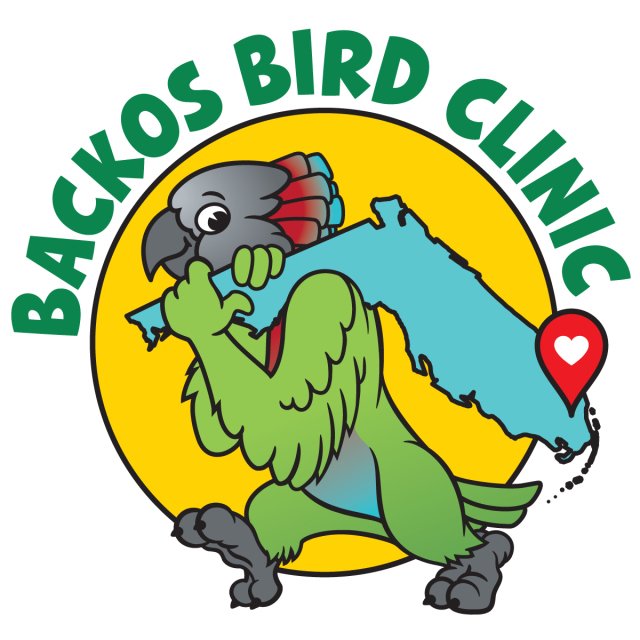 How to Recognize the Signs of an Avian Emergency
How to Recognize the Signs of an Avian Emergency
Backos Bird Clinic, serving all of Broward County, FL, provides around the clock emergency care for all bird types. If you think your bird is having a medical emergency, call (954) 427-0744 for 24-hour assistance. Fully trained in avian emergency treatment, our entire staff is educated about and implements life saving techniques and nursing procedures to help stabilize our patients and get them back on the road to recovery.
But, how do you know when it is time to visit the ER? Learning to recognize common signs of distress in your bird can save their life.
Reduced Movement or Weakness
If you notice your bird’s activity has decreased and they are staying towards the bottom of their cage and away from their perches, it is advised to call in and speak to someone on our staff. Since birds do not always outwardly show all of their symptoms, changes in behavior are a key indicator that something could be wrong.
Bleeding or Blood Loss
If there is significant amounts or blood coming from an unidentifiable source, it is best to reach out to a trained avian vet. While birds are able to tolerate blood loss better than some mammalian species, excessive amounts can push them into shock or be an indicator of a serious problem. Our staff can help you determine if your bird needs to be seen after hours or if your situation can wait until normal clinic hours.
Difficulty Breathing
Respiratory distress is, often times, more easily noticed by the strain to breathe and wheezing, and can be accompanied by nasal and eye discharge. There could be many underlying reasons for your bird exhibiting these symptoms, but it is always recommended to contact us as soon as you notice these behaviors. At the onset of these symptoms, you can try to remove your bird from their current environment, in case something in the air is causing the difficulty in breathing.
Egg-Bound
When female birds are unable to pass an egg in their normal laying window, they may be suffering from egg binding. Often brought about by a nutritional imbalance, the deficiency in necessary vitamins and minerals can prevent needed contractions to help expel eggs. If left untreated, an egg-bound bird situation can become critical. Call and speak to our staff if your bird has stopped passing eggs, is straining to try and defecate or expel the egg, or if they are exhibiting depression-like behaviors.
Sudden Changes in Normal Routines or Behaviors
As their owner, you are the best source to notice changes to your bird’s behaviors or regular routines, from how much and when they like to eat and sleep, to the normal color of stool or urine. If you notice that your bird is not acting like themselves, it could be a sign of an underlying issue. Document what symptoms your bird has been experiencing and call our after-hours line to discuss with a staff member if you need to bring your bird for immediate treatment.
